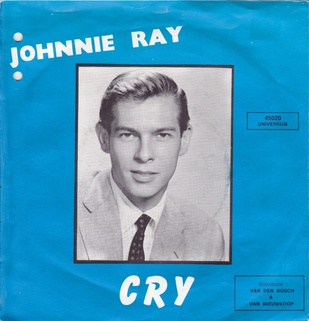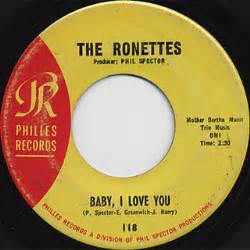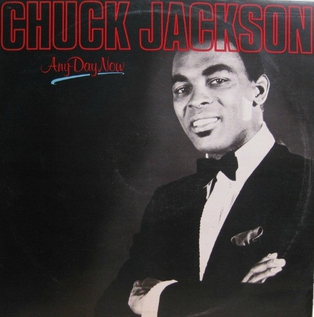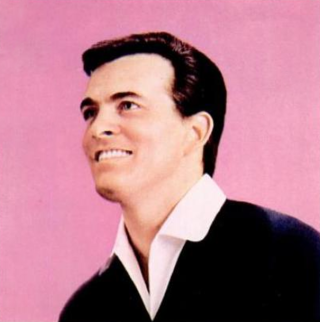
"When Doves Cry" is a song by American musician Prince, and the lead single from his sixth studio album Purple Rain. According to the DVD commentary of the film Purple Rain (1984), Prince was asked by director Albert Magnoli to write a song to match the theme of a particular segment of the film that involved intermingled parental difficulties and a love affair. The next morning, Prince had composed two songs, one of which was "When Doves Cry". According to Prince's biographer Per Nilsen, the song was inspired by his relationship with Vanity 6 member Susan Moonsie.
"I Really Don't Want to Know" is a popular song written by Don Robertson (music) Howard Barnes (lyrics). The song was published in 1953.

"I Can't Stop Loving You" is a popular song written and composed by country singer, songwriter, and musician Don Gibson, who first recorded it on December 3, 1957, for RCA Victor Records. It was released in 1958 as the B-side of "Oh, Lonesome Me", becoming a double-sided country hit single. At the time of Gibson's death in 2003, the song had been recorded by more than 700 artists, most notably by Ray Charles, whose recording reached No. 1 on the Billboard chart.

"Cry" is a 1951 popular song written by Churchill Kohlman. The song was first recorded by Ruth Casey on the Cadillac label. The biggest hit version was recorded in New York City by Johnnie Ray and The Four Lads on October 16, 1951. Singer Ronnie Dove also had a big hit with the song in 1966.

"Baby, I Love You" is a song originally recorded by the Ronettes in 1963 and released on their debut album Presenting the Fabulous Ronettes (1964). The song was written by Jeff Barry, Ellie Greenwich, and Phil Spector, and produced by Spector.

"Since I Don't Have You" is a song written and composed by Jackie Taylor, James Beaumont, Janet Vogel, Joseph Rock, Joe Verscharen, Lennie Martin, and Wally Lester. It was first a 1958 hit single for the doo-wop group the Skyliners on the Billboard Hot 100. Country music singer Ronnie Milsap had a hit with the song in 1991. American hard rock band Guns N' Roses also had some success in 1994 with their version of the song which reached the top 10 on the UK Singles Chart.
"Mountain of Love" is a song written by Harold Dorman. Dorman released his version as a single in 1960. It was originally recorded in late 1959 at the Royal Recording Studios in Memphis before the backing vocals were overdubbed. It performed well, spending 19 weeks on the Billboard Hot 100 chart, peaking at No. 21 in May 1960, while reaching No. 7 on the Billboard Hot R&B Sides chart, and No. 25 on Canada's "CHUM Hit Parade". The song was his only top forty hit on the Billboard Hot 100 and was the highest-charting single of his career.

"It's Only Make Believe" is a song written by drummer Jack Nance and Mississippi-born singer Conway Twitty, while they were touring across Ontario, Canada in 1958. Twitty was a relatively unknown rock n' roll singer at the time, and this song was his first hit, reaching No. 1 on the Billboard chart in November 1958 for two weeks.
"Ruby Baby" is a song written by Jerry Leiber and Mike Stoller. It was originally recorded by the Drifters. Their version was released as a single by Atlantic Records in 1956. It peaked at No. 10 on the US Hot R&B chart.
"One Day at a Time" is a popular Country and Western-style Christian song written by Marijohn Wilkin and Kris Kristofferson. It has been recorded by over 200 artists and has reached No.1 in several territories. Scottish singer Lena Martell had a UK Singles Chart number one with her version in 1979.

"Husbands and Wives" is a song written and first recorded by American country music singer Roger Miller. Miller's original, from his album Words and Music, was released in February 1966 and was a crossover hit for him, reaching Top Ten on the U.S. country and Adult Contemporary charts, as well as Top 40 on the pop charts. Since the release of Miller's original, the song has been covered by several other artists, including The Everly Brothers, Ringo Starr, Neil Diamond, a duet between David Frizzell and Shelly West, Jules Shear, and Brooks & Dunn, whose version was a number-one country hit in 1998.

"Any Day Now" is a popular song written by Burt Bacharach and Bob Hilliard in 1962. It has been recorded by numerous artists over the years, including notable versions by Chuck Jackson in 1962, Alan Price in 1965, Elvis Presley in 1969, Scott Walker in 1973 and Ronnie Milsap in 1982. In the lyrics, the singer predicts the imminent demise of a romantic relationship and describes the sadness this will leave.

Ronald Eugene Dove is an American pop and country music singer-songwriter who had a string of hit pop records in the mid to late 1960s and several country chart records in the 1970s and 1980s.

"Lost in the Fifties Tonight (In The Still of the Night)", a single released by country music singer Ronnie Milsap. It is a medley of "Lost in the Fifties Tonight" written by Mike Reid and Troy Seals and a cover of The Five Satins' 1956 hit "In the Still of the Night".

"Things" is a song which was written and recorded by Bobby Darin in 1962. Released as a single, it reached No.3 in the U.S.and Canada, No.2 in the U.K., and No.3 in the first-ever official Irish Singles Chart, published by RTÉ in October 1962. It was later covered by Ronnie Dove and became a Top 30 country hit for him.

"Sea of Heartbreak" is a song written by Paul Hampton and Hal David and recorded by Don Gibson in 1961. The song reached #2 on the Billboard Hot Country Singles & Tracks chart.
Diamond Records was a record label, based in New York City, which was founded in 1961 by former Roulette Records executive Joe Kolsky. Another Roulette exec, Kolsky's brother Phil Kahl, joined Kolsky in the venture the following year.

Ronnie Dove Sings the Hits for You is Ronnie Dove's fourth studio album for Diamond Records.

"One More Mountain to Climb" is the 14th Diamond Records single for Ronnie Dove.
"Right or Wrong" or "Right or Wrong (I'll Be with You)" is a song written and originally recorded by Wanda Jackson, an American country, rock, and Christian music artist. Originally, the song was a major country and pop hit for Jackson in 1961. A second version was released in 1964 that became popular by American pop artist, Ronnie Dove.














